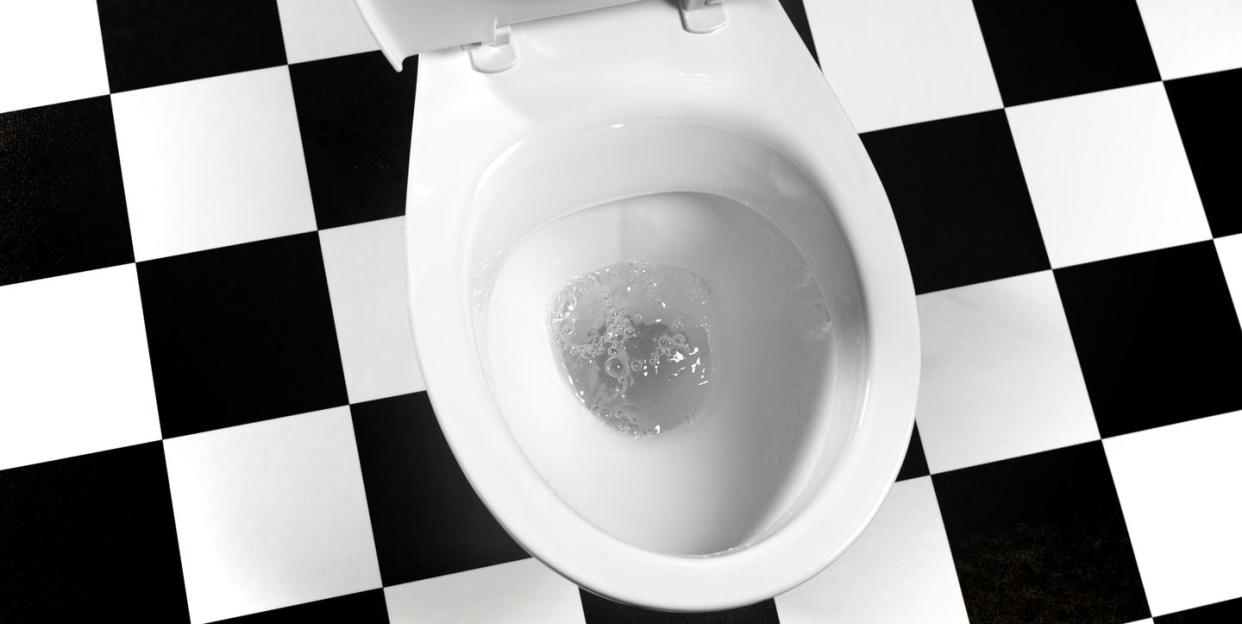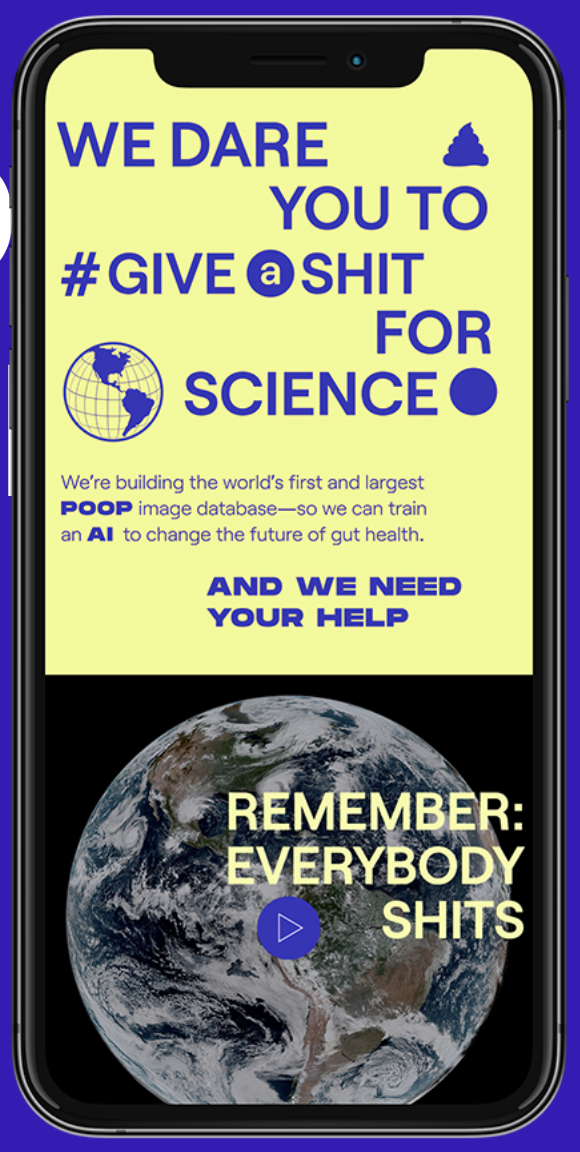This Company Wants Photos of Your Poop. For Science.

Seed, a microbial sciences company in partnership with auggi, a startup that spun out of the Massachusetts Institute of Technology, is asking random strangers for photos of their poop for research purposes.
Funny as that may sound, there's a real health goal here: collecting enough excrement data to analyze it all with AI. The aim is to help people suffering from gut-related chronic diseases.
To submit photos of your specimen, you can visit seed.com/poop/
This company wants about 100,000 people turning in turd images for science.
Seed, a microbial health company—working in partnership with auggi on the poop project— is a startup spun out of the Massachusetts Institute of Technology in Boston back in June 2017. It's on a mission to help the estimated one in five people in the U.S. who have chronic conditions of their gut, such as Crohn's disease and irritable bowel syndrome.

The startup—headquartered in Venice, California—hopes to eventually build a new diagnostic tool for doctors. The idea is to empower patients to better monitor their condition by analyzing images with an AI system.
Now to be clear, the company does not want actual samples of excrement—just photos. Also if you have urgent concerns about your gut's microbiome, this is not the app or website for you. You're better off purchasing a fecal immunochemical test, which screens for colon cancer by finding hidden blood in the sample.
Seed, meanwhile, is building up its fecal database alongside a team of seven gastroenterologist doctors who will carefully examine each image, reports The Verge.
The doctors’ insights into your poop will help train an artificial intelligence model (named auggi), which comes from a separate partner company) that will eventually help those systems see and understand the same anomalies that physicians see in images. It's analogous to the way machine learning models in autonomous vehicles are trained to "see" and drive like humans.
David Hacheul, CEO and co-founder of auggi, broke down the process for Popular Mechanics.
As a first step, we will train a series of deep neural networks (these are the type of state-of-the-art techniques that perform best in image characterization tasks) to understand stool consistency. These algorithms are very data hungry, and that’s why they need a lot of training examples.
As images come in anonymously from the #giveashit campaign, they are shown to a group of gastroenterologists who annotate each and every image with their expert observations. Once this is done, we can show all of these examples to the deep neural networks who will learn from the expert annotations. This process is just like teaching a baby what a dog or cat is: you show a bunch of examples.
Hacheul stresses that he's glad his company is partnering with Seed for two main reasons: One, to raise awareness about gut health and to "change the conversation around poop to fight against the stigma millions of patients live under"; and two, to create better tools to measure gut health, making them available to the academic research community at no cost.
During an initial attempt to gather images, the team—composed of co-founders Ara Katz and Raja Dhir—looked to Reddit and crowdsourcing sites to see if people would willingly upload photos of their feces to discussion boards. As one can imagine, they did so willingly. In fact, Katz said she was surprised at how many people were willing to share and discuss different qualities.
"Everyday, you flush away a goldmine of data—your poop's size, shape, color, texture, consistency and frequency can offer important insights into your overall health."
You Might Also Like

